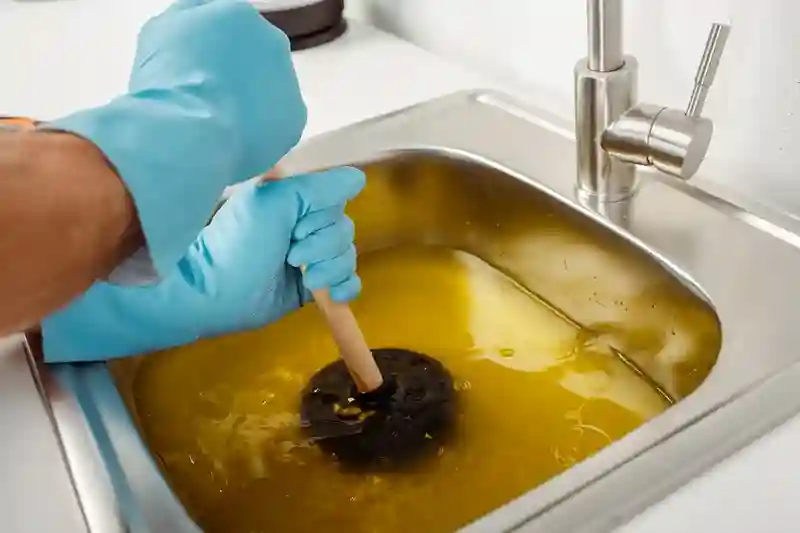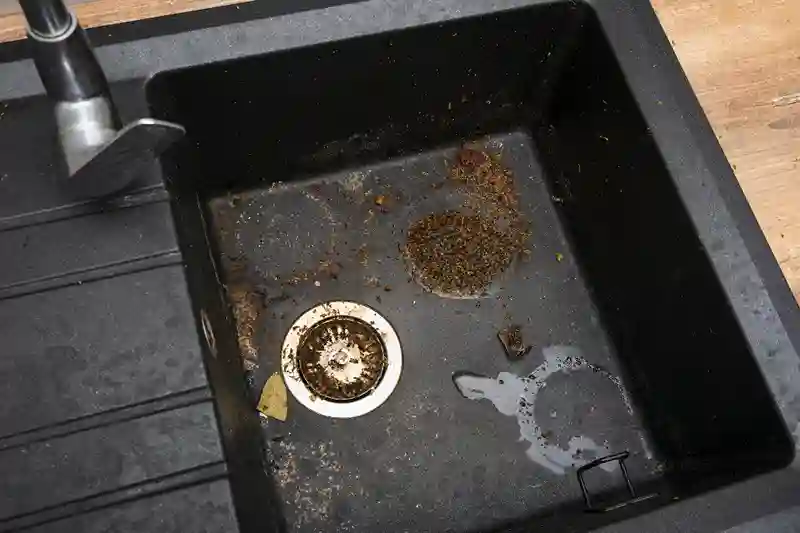Running a restaurant is no easy thing. While you’re busy serving customers, managing employees, and assuring food quality, a plumbing crisis can arise. However, disregarding grease trap cleaning and drain maintenance can result in costly blockages, unpleasant odors, and even health code violations. Let’s look at why regular care is essential for any restaurant.
Understanding Grease Trap & Drain Maintenance for Restaurants
What Is a Grease Trap and How Does It Work?
A grease trap is a plumbing fixture that keeps fats, oils, and grease (FOG) from entering your drainage system. It traps grease before it solidifies and clogs your pipes. Without grease trap maintenance, you risk encountering tenacious obstructions that might put your kitchen to a halt.
Why Drains in Commercial Kitchens Are More Prone to Clogs
Unlike residential kitchens drain cleaning, restaurant drains have to cope with huge volumes of oil, food waste, and detergents on a regular basis. Over time, this accumulation creates major drainage problems. Without restaurant drain cleaning, even a tiny obstruction may turn into a full-fledged plumbing problem.
Common Issues Caused by Neglected Grease Traps & Drains
Ignoring grease trap service can lead to the following:
- Slow draining and backups.
- Unpleasant odors that drive customers away
- Expensive emergency plumbing repairs.
- Health infractions and business disruptions.
The Consequences of Skipping Grease Trap & Drain Cleaning
Health Code Violations & Fines
Local health officials need grease trap cleaning on a regular basis to ensure hygienic conditions. A neglected system might result in penalties, temporary shutdowns, or worse a tainted image that is difficult to restore.
Plumbing Backups & Emergency Repairs
A blocked grease trap does more than simply slow down drainage; it may cause total backups. Emergency plumbing repairs are far more expensive than routine upkeep.
Foul Odors That Affect Customer Experience
Nothing destroys an appetite like the smell of decaying grease. Grease traps that are not properly cleaned emit bad scents, which can permeate your eating area and drive guests away.
Increased Risk of Pest Infestations
Grease and food waste entice mice and bugs. If your drains and grease traps are not properly maintained, you risk attracting an undesirable infestation into your kitchen.
Higher Operating Costs Due to Poor Drainage
Slow drains reduce dishwashing, meal preparation, and general kitchen efficiency. Clogged pipes can lead to wasted water, more cleaning effort, and even temporary kitchen closures.
How Often Should You Clean Your Restaurant's Grease Trap & Drains?

Industry Standards & Local Regulations for Grease Trap Cleaning
Most health regulations demand grease trap cleaning service at least once every three months. Some high-volume restaurants require it more regularly to ensure compliance and avoid problems.
Factors That Determine Cleaning Frequency
- Restaurant Size: Larger kitchens with several cooking stations produce more grease.
- Menu Items: If your menu includes fried dishes, your grease trap will fill up quickly.
- Volume of waste: The more consumers you service, the more frequently you will need to do maintenance.
Signs That Your Grease Trap or Drains Need Immediate Cleaning
- Slow drainage in sinks and floor drains.
- Strong, rotten smells around the grease trap.
- Grease accumulates within the trap.
- Increased insect activity near drains.
Best Practices for Preventing Grease Trap & Drain Clogs
Here is how to prevent grease trap clogs:
Daily Kitchen Practices to Reduce Grease Buildup
- Scrape the plates before washing.
- Use strainers in sinks to capture food waste.
- Avoid putting oil down the drain.
- Train personnel on correct disposal practices.
Choosing the Right Drain Cleaning Solutions for Commercial Kitchens
Harsh chemicals can harm pipelines and grease traps. Choose enzyme-based drain cleansers or arrange a commercial drain cleaning to remove buildup thoroughly.
The Role of Enzyme Treatments & Biological Cleaners
Biological cleansers degrade grease naturally, minimizing clogs and smells. Regular usage can assist to keep pipes clean in between expert restaurant drain cleaning treatments.
Professional Grease Trap & Drain Cleaning Services: What to Expect
While everyday upkeep is beneficial, DIY cleaning cannot eliminate all built-up oil. Professional grease trap service assures thorough cleaning and adherence to health requirements.
Why DIY Cleaning Is Not Enough for Restaurants
While everyday upkeep is beneficial, DIY cleaning cannot eliminate all built-up oil. Professional grease trap cleaning service assures thorough cleaning and adherence to health requirements.
How Professional Plumbers Clean & Maintain Grease Traps
- Inspect the grease trap levels
- Remove the grease, sludge, and solids
- Clean and clean the trap
- Check for plumbing concerns
What Happens During a Professional Drain Cleaning Service?
- High-pressure water jetting to remove clogs
- Video examination of pipelines.
- Safe and non-toxic cleaning solutions
Recommendations for regular grease trap maintenance
Cost vs. Savings: Why Preventative Maintenance Pays Off
Comparing the Costs of Regular Cleaning vs. Emergency Repairs
Routine commercial drain cleaning costs significantly less than emergency repairs. A single significant blockage might result in thousands of dollars in downtime, plumber expenses, and lost revenue.
How Proper Maintenance Extends the Lifespan of Your Plumbing System
Clean pipes and grease traps decrease wear and tear on your plumbing, avoiding costly replacements and repairs.
Long-Term Benefits for Health, Safety, and Business Reputation
A well-maintained kitchen keeps guests satisfied, operations running smoothly, and your restaurant’s reputation safe from unwanted health inspections.
FAQs About Restaurant Grease Trap & Drain Cleaning
How do I know if my grease trap is full?
If your sinks drain slowly or you notice a foul odor, your grease trap probably needs to be cleaned.
What happens if I don't clean my grease trap?
It will clog, overflow, and may result in costly plumbing difficulties or health code violations.
How often should restaurant drains be cleaned?
No, they can cause damage to pipelines and grease traps. Use enzyme-based solutions instead.
Can I use chemical drain cleaners in my restaurant's plumbing?
No, they can damage pipes and grease traps. Use enzyme-based solutions instead.
Do I need a professional service, or can my staff handle grease trap maintenance?
Professional cleaning services assure thoroughness, compliance, and the prevention of long-term concerns.
Are there regulations for grease trap maintenance in my area?
Most municipal ordinances mandate frequent cleaning; check with your health agency for details.
Do commercial water heaters require different permits?
Yes, commercial systems have more stringent installation and ventilation requirements.
How can I find my county's plumbing requirements?
Consult your local building department’s website or call for relevant restrictions.
Keep Your Restaurant Running Smoothly with Regular Drain & Grease Trap Maintenance
Regular grease trap cleaning and professional commercial drain cleaning are non-negotiable for any restaurant. Don’t wait for a clog to cause a disruption in your operation; instead, schedule periodic maintenance.
Rooter-Man specializes in grease trap services, restaurant drain cleaning, and preventive maintenance. Our crew keeps your kitchen clean, compliant, and clog-free. Contact us today for experienced servicing that will keep your business running smoothly!


